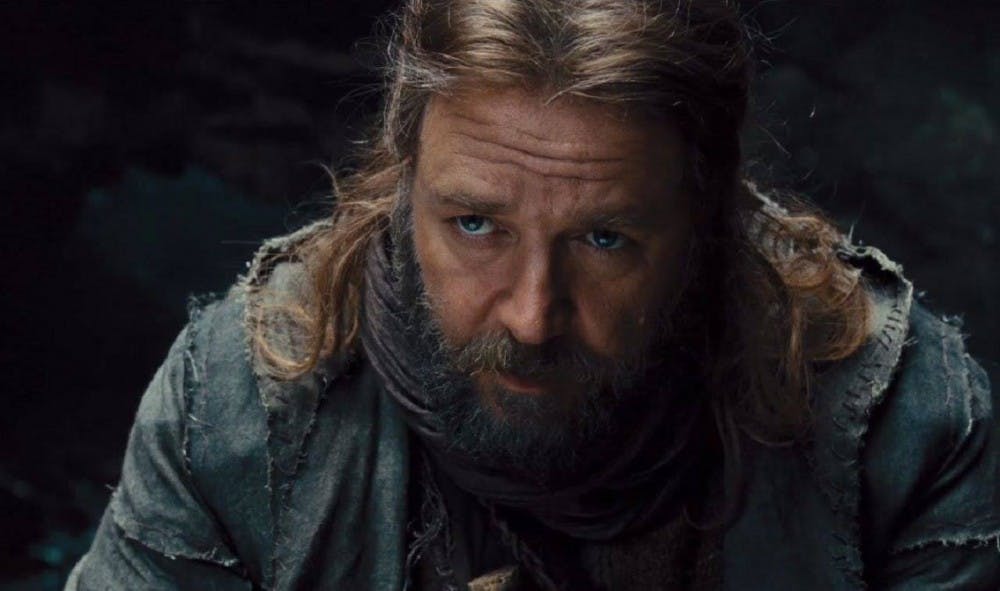By David Seaman | Echo
Forget everything you learned in Sunday-school about Noah. Dark, violent and at times disturbing, the new film "Noah" has the Old Testament hero carrying out God's orders in a not-so-pleasant fashion.
Yet director Darren Aronofksy's telling of the Genesis flood narrative contains deeply spiritual themes and thoughtful storytelling-all too rare in today's Hollywood films.
"Noah" follows the basic structure of the account but expands on it for narrative effect. Every addition I found points in some way to God; Aronofsky has stated he used the Jewish tradition of "midrash," which fills in the gaps of biblical narrative. This is the story of Noah that comes from the actions of Adam, Eve, Cain, Abel and others before him.
Do not see "Noah" if you want a truly accurate depiction of Genesis 6-9. The Nephilim, giants of the Bible who are supposedly the offspring of humans and angels, are portrayed as six-armed rock beings who help build the ark. Other aspects, such as mystical snakeskin and glowing stones supposedly from Eden, are important aspects of the story not found in the original story-but are relative to both biblical and extra-biblical texts.
To some this will come off as strange and even blasphemous, especially since "Noah" is directed by a self-proclaimed atheist. But "Noah" above all else is a massively spiritual film, not an anti-religious one. Each deviation has religious implications behind it that require thought and engagement.
So "Noah" has its mind in the right place, and it raises tough and serious questions that set it apart from most blockbusters. But how is the film production-wise? "Noah" is not a perfect film. Some parts, especially the battle for the ark, feel like a video game. A third-act fight scene feels forced and predictable. For a movie that takes big risks with the Noah story, it's a shame it didn't do the same with the Hollywood formula.
Visually, the film is astounding. The "springs of the great deep" are impressive, truly meant to be experienced on the big screen. My favorite scene in the whole film was an extremely well done time-lapse of the creation story. In around two or three minutes, a tale we have heard many times is told in a fresh new way that pushes boundaries and commands the audience think about the story in a new light.
Russell Crowe has an earthy presence as Noah. Crowe plays Noah as a man convinced that mankind has fallen too far. Only a flooding of the world can renew what came before man's fall, Noah convinces himself. And when we see the wickedness of humans who have disobeyed such a merciful God, we begin to understand why Noah can only see judgment.
Jennifer Connelly matches up well with Noah as his wife Naameh. There's a wonderful scene where she and Noah debate the goodness and wickedness in each of their children, playing with the themes of God's mercy and judgment. It's through her incites and the pleadings of Emma Watson's well-drawn character that Noah begins to see the good that God has also put in man.
It's best to view "Noah" more as an allegorical parable than accurate account. It takes many liberties with the story, but like Tolkien's "Lord of the Rings" or Lewis' "Chronicles of Narnia," it presents themes and symbols that always point to a spiritual presence. Some parts are admittedly bizarre, but ultimately I believe the messages "Noah" presents overcome the narrative flaws. This is by no means a film that undermines the Christian faith; in the hands of an atheist director, it examines that faith and provokes deep discussion from timeless questions related to God's presence.Thumbnail photograph courtesy of 2-movie.ie.





